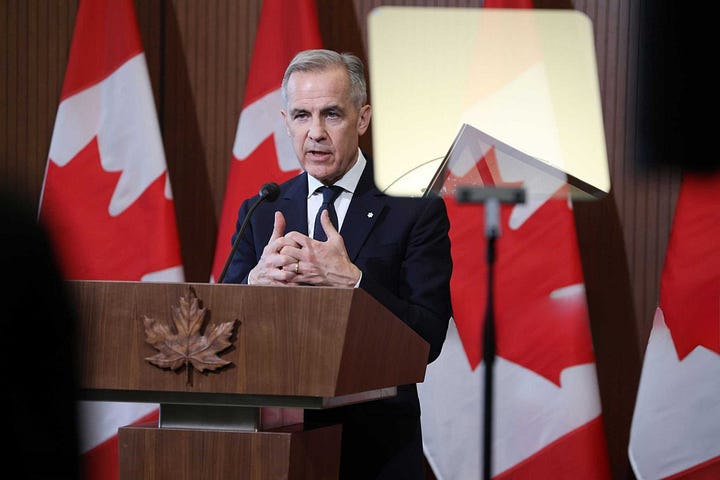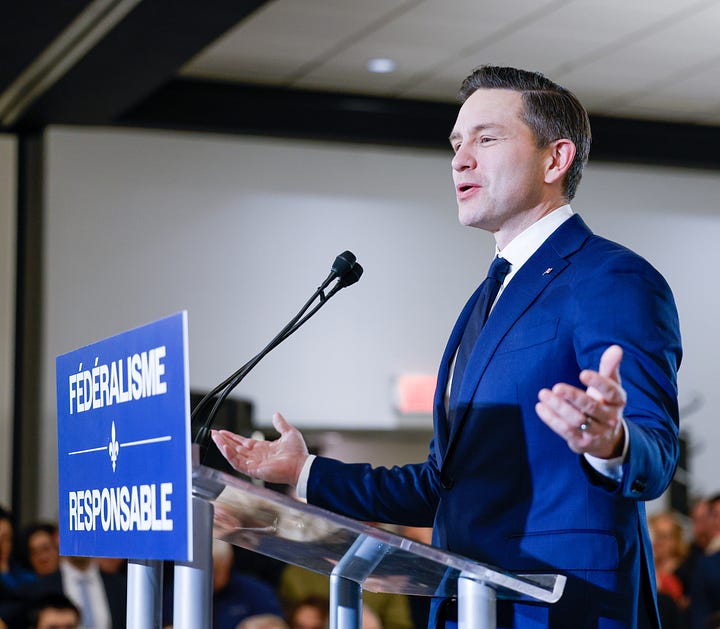What an election won't fix
Part I: Let's keep being citizens the day after the election, too


I wanted to publish this before the election — before we even know who will win the election. An election is an important moment for a country, but I worry about how much work will lie ahead after it’s over. This is the first part of a two-part essay.
I think Canada’s politics has sunk into deep ruts. I think we need fresh and serious thinking about what kind of country we want to be. I worry that euphoria after an election in the winning camp, followed immediately by the crush of events, risks pre-empting fresh approaches.
For a decade our political parties, our Parliament, our public service and the other institutions of our democracy have been putting more and more energy into forgetting how to make decisions. Instead they’re all-in for message amplification. They’re so busy saying that they don’t hear — don’t, in fact, dare to hear because new information would only complicate lives they barely control. There’s a forced, hollow certainty to too much of our political discourse that barely masks timidity and confusion behind.
Our leaders are horrified at the prospect of being disagreed with, a phobia exemplified by the deepening moral cowardice of Pierre Poilievre in the face of the most routine journalistic inquiry. But I see Poilievre as an increasingly pathetic symptom of a widespread phobia, rather than as a particular instigator. After all, a prominent unperson whose decade-long tenure as prime minister we are now asked to forget spent last summer popping up unannounced, each time in the presence of a single reporter who was formally forbidden from asking him any questions.
Sorry I just said something mean about your favourite leader, everyone. But that’s a big part of the problem. We’re building cults of personality around people with unremarkable personalities. In a polarized age, supporters of our hollow parties have been betting everything on a succession of unpersuasive leaders, and investing not nearly enough in the institutions that would help us navigate wild times, if we let them.
This is best exemplified by something that just happened, although it’s remarkable how few people talk about it.
The Liberal Party of Canada spent years digging trenches to defend a few policy totems — a consumer carbon tax; a deep distrust of resource exports and of spending on national security in an increasingly addled world; a late-blooming fascination with increasing the capital-gains tax as a means of prosecuting a purely symbolic class war. The party ignored every debate about any of these matters. Canadians were free to disagree, but they had no chance of being heard. Indeed, the governing party distributed favour and sanction in proportion to its members’ willingness to endorse these totems without thinking.
By 2025, the only way the party could survive an election was by ejecting Trudeau, in favour of a new leader whose name might as well be Plausible Deniability, and whose first task was to take all these sacred policy cows out to be shot.
The party that used to believe in one set of things now believes as fervently in their opposites. Have you heard? Oceania’s at war with Eastasia, and it’s awesome.
The Conservatives responded to the Liberal edifice, while it held, by building their own, incorporating variations borrowed from ancient Sparta. Endorsement of the leader’s views was insufficient: MPs and candidates must use his vocabulary. I stopped reading statements from Conservative MPs after the first appearance of the phrase “sneaky Mark Carney,” knowing the MP who had signed the statement hadn’t written it and might not have seen it.
Conservative high command forbade conversations with infidels. A reporter I know was chatting outdoors with an MP when the MP received a text: “Get away from that reporter.” Parliamentary committees were used as video-production studios for the production of social-media morality plays about the superiority of the Party. To the extent those meetings might otherwise have been useful for the business of Parliament, too bad.
Keep reading with a 7-day free trial
Subscribe to Paul Wells to keep reading this post and get 7 days of free access to the full post archives.


